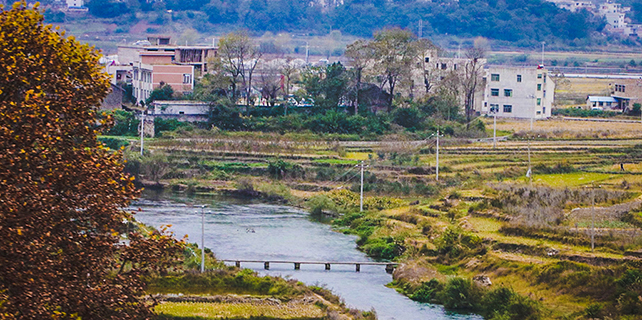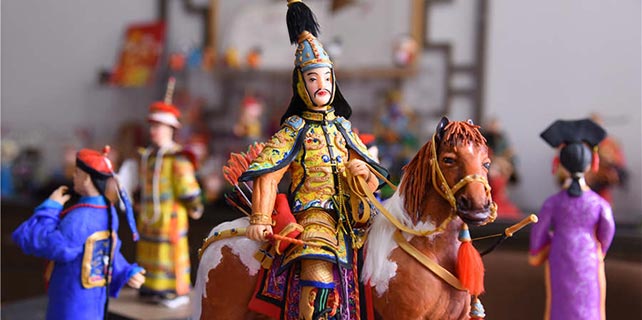FOCAC shaping China-Africa cooperation
Over the years, a new model of engagement has yielded rich rewards for the trading partners
A lot has been achieved from China-Africa cooperation, says Xiao Yewen, counselor of the Chinese embassy in South Africa.
Since the second summit of the Forum on China-Africa Cooperation in 2015, held in Johannesburg, South Africa, the two sides have recorded significant success in various spheres that complement the spirit of win-win cooperation, he says.
"Pragmatic cooperation in particular has resulted in early harvests," he says, adding that the first quarter of 2017 saw a surge in trade volume, which has reached $38.8 billion - 16.8 percent growth year-on-year.
Data shows that China is Africa's leading trading partner, while the continent is the third-largest investment destination and the second-largest contract engineering market for China. More than 3,000 Chinese enterprises have invested in Africa, with more than $100 billion in gross assets.
Xiao says statistics show that since the summit, 127 China-supported projects with a total value of $22.4 billion have been put into operation, creating about 122,000 jobs; 384 projects with a value of $51.5 billion are under construction, creating about 87,000 jobs; and 95 program-cooperation agreements worth $34.6 billion have been signed.
Moreover, special economic zones and industrial parks have sprouted up in the Republic of Congo, Ethiopia and Egypt.
"China has also trained 100,000 technical personnel and provided 20,000 government scholarships to Africa," Xiao says. "More important, the $60 billion in funding support has led to hundreds of billions of dollars' investment and financing cooperation from China, which contributes a lot to Africa's employment and economy."
He says that South Africa, the summit co-chair, has been proactive in implementing the agreements. This has led to an increase in trade volume, which reached $35.3 billion last year, with Chinese investment in South Africa, the largest African economy, reaching about $13 billion. "China-South Africa cooperation has become a model for the continent," says the counselor.
Private and public partnerships alike have flourished. Last year, Beijing Automobile Group BAIC and Yangtze Optical Fiber and Cable Co set up factories in the country, and they are expected to generate jobs, thus easing the government's burden. Additionally, Chinese companies are participating in the building of the Musina-Makhado Special Economic Zone.
"As a major step forward in the implementation of the outcomes of FOCAC, the China-South Africa High Level People-to-People Exchange Mechanism was inaugurated in April. It is the first such high-level intergovernmental platform between China and Africa aimed at promoting people-to-people exchanges, which is another milestone in the growth of the China-Africa relationship," Xiao says.
He predicts that the two partners will desire stronger momentum and prosperity for their peoples. "As an important direction and goal for the Belt and Road Initiative, Africa is well positioned to conduct more strategic and practical cooperation with China in a larger landscape," he says.
China is willing to work closely with the continent to pragmatically combine the 10 major China-Africa cooperation plans and Belt and Road with the African Union's Agenda 2063, focusing on promoting industrial alignment and capacity cooperation as well as opening new dimensions for business cooperation.
Mahdi Basadien, the director for China at the Department of International Cooperation in South Africa, confirms that the African country has seriously followed up on its implementation of the FOCAC agreements. He says South Africa will finalize projects by the end of FOCAC's three-year implementation period, and the achievements are visible.
He also says the country is finalizing the process to export beef products to China. This offers a lucrative opportunity for South Africa, which is under pressure to diversify from the commodities market.
In 2015, the production of beef in South Africa amounted to around 740,000 tons. At least 25 tons was exported at a value of $25 million, government statistics show.
Paul Tembe, a consultant at the Thabo Mbeki African Leadership Institute and a Sinologist, says that for Africa to effectively access China's vast market, it first needs to understand Chinese culture. Tembe says that over the years, China has forged a new model of engagement with Africa.
The new Navy logistics base in Djibouti is one example. "China committed to promote peace in Africa, and the base strengthens this resolve, since it meets its global responsibilities such as by participating in maritime patrols against piracy in the Horn of Africa and increasing personnel serving under UN peacekeeping missions," says Xiao.
lucymorangi@chinadail.com.cn









